Larissa Yamaguchi wanted to adopt a cat, but because she was still a minor, she had to convince the rest of her family. Thankfully, they agreed, so she reached out to a friend of a friend who was involved with animal rescue near her home in São Paulo City, São Paulo, Brazil. “I asked her if she had any rescued baby cats,” remembers Larissa, and the woman sent her a picture of a black kitten. “He was not actually with her, but with a woman that rescued him from a street flood.”
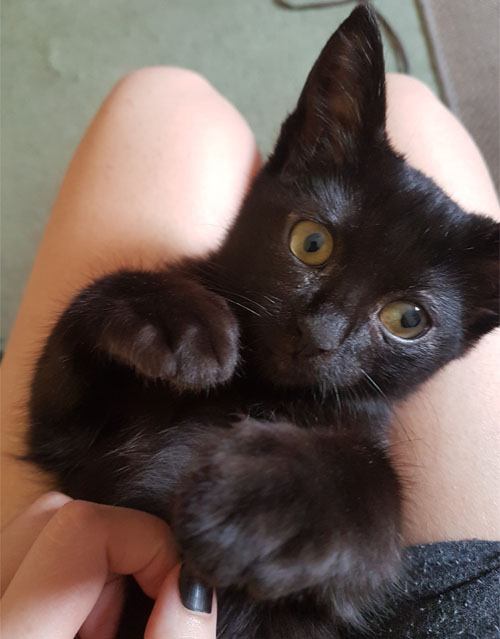
Smitten with the adorable young feline, Larissa and her family adopted him at the end of September 2016 when he was approximately six weeks old.
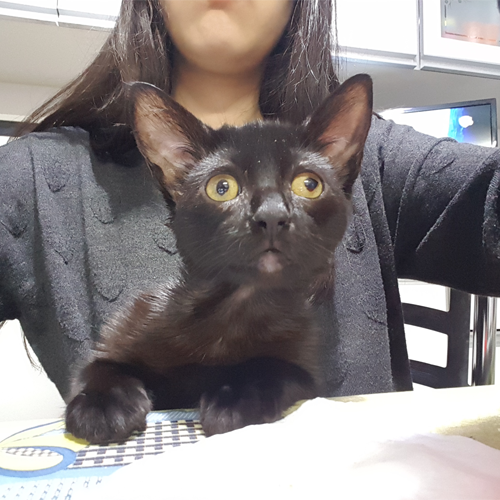
“He was a small little baby when he arrived,” says Larissa, and she and her family chose a name for the kitten that was an ode to their heritage. “Since I come from a Japanese family, we thought about some Japanese food names, and Sushi suited the best for him!”
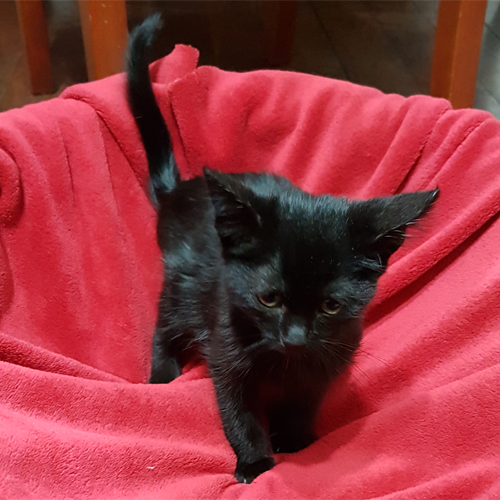
Initially, Sushi appeared to be a fairly typical cat, but as his first birthday approached, Larissa and her family noticed his cheeks were starting to sag, giving him a sad appearance. “We believed that he was just getting fat,” remembers Larissa. “Then we realized his whole body had flexible skin.”
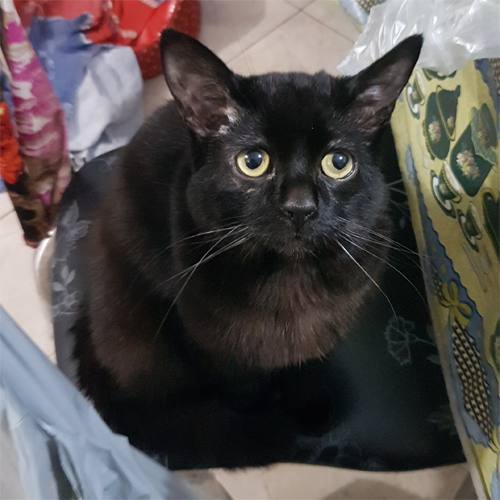
They also noticed Sushi was scratching himself a lot, causing them to suspect he was suffering from itchy skin. Still, they didn’t think there was anything majorly wrong with the cute black cat until they realized that when Sushi used his teeth and claws to ease his discomfort, he was causing serious injuries to his skin.
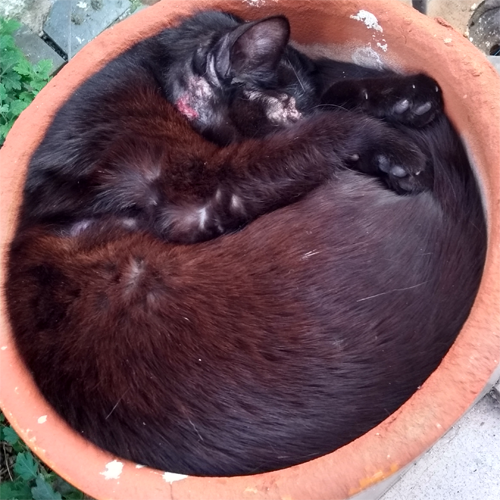
“He went through this big infection in 2018 that made him lose part of his neck skin,” explains Larissa. “It was very scary.”
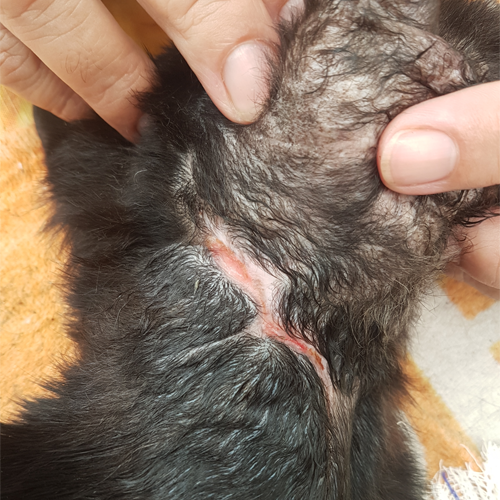
While Larissa and her family regularly sought treatment to prevent Sushi’s wounds from becoming infected, no one — including the staff at their vet’s office — seemed to know what was causing his skin to be itchy, thin, prematurely saggy, and slow to heal. “There were so many tests and medicines and going to the vet frequently because of the wounds,” remembers Larissa, which was expensive and very stressful, especially for Sushi.
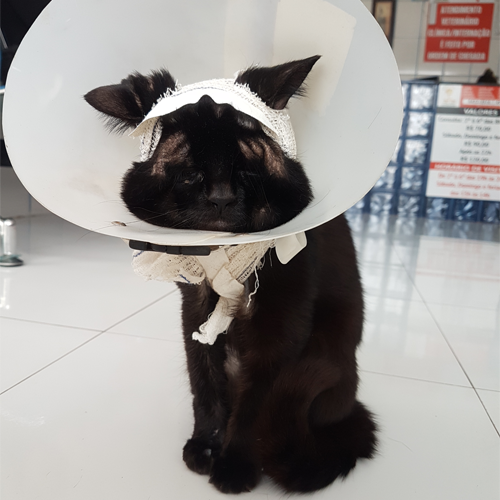
After nearly four years of unanswered questions, Sushi was finally diagnosed with Ehlers-Danlos syndrome (EDS), or feline cutaneous asthenia (FCA), in 2020. At the time, neither Larissa nor her family had even heard of Ehlers-Danlos syndrome, a group of inherited connective tissue disorders that can cause animals and people to have a range of symptoms, including unusually elastic skin that tears easily, is slow to heal, and scars abnormally. “The problem is people usually don’t know about EDS,” says Larissa. “It’s very rare to see a person or animal that has it.”
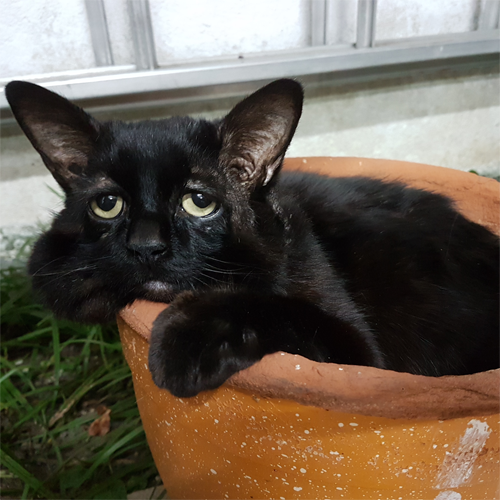
Following Sushi diagnosis, Larissa and her family began researching Ehlers-Danlos syndrome, a condition which currently doesn’t have a cure. Also, because most — if not all — of his injuries were self-inflicted, they started looking into ways to help protect Sushi from himself, something they’re still doing today. “Right now, our challenge is to be creative and find options of treatments for him, like finding special foods and creating clothes to protect his skin,” explains Larissa.
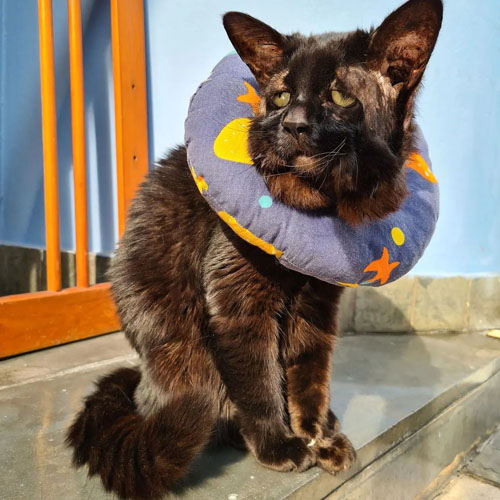
Fortunately, their efforts have been relatively successful, and since losing part of the skin on his neck in 2018, Sushi hasn’t suffered any major trauma. “Now he has a scar,” says Larissa, “but he fully recovered!”
View this post on Instagram
While he may have to wear cones, clothing, and e-collars to protect his fragile skin, Sushi doesn’t really mind, and he is still able to have a happy and active life!
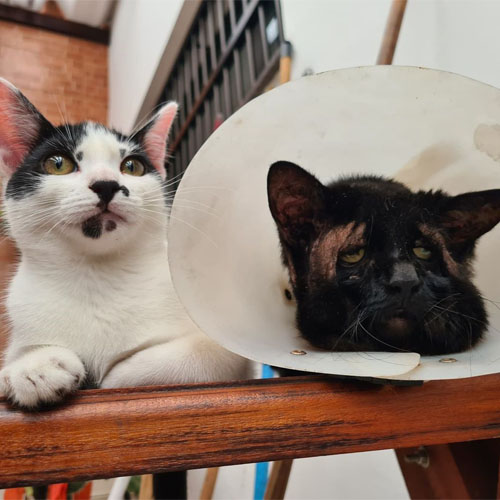
“He loves to play with his younger sisters,” says Larissa, but like a typical feline, he spends a lot of time napping. “He loves to sleep in hidden places and nap on his mama’s lap. He is a very lovely boy.”
View this post on Instagram
Sadly, Larissa has received a lot of negative comments via social media about Sushi, mainly from individuals who have never heard of Ehlers-Danlos syndrome, much less cats with the condition. “At first sight, people usually think that the cat is very old, was burnt, or is mistreated,” says Larissa. Consequently, people assume she must be neglecting or abusing Sushi, which she finds extremely hurtful.
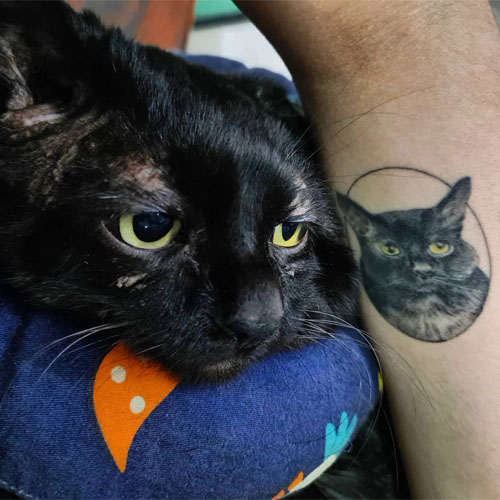
As a result, Larissa wants to raise awareness about Ehlers-Danlos syndrome, not only so she receives less unwarranted criticism, but also because she wants affected cats to get diagnosed as quickly as possible. After all, Sushi suffered for four years before his family knew the reason for his symptoms, causing him a lot of unnecessary stress and discomfort. “[People should] know that cats with special needs exist,” says Larissa, “and they need our help and have lots of love to give like every other cat!”
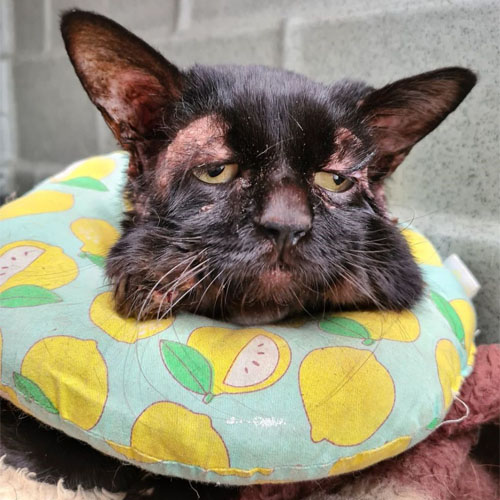
When Larissa convinced her family to adopt a kitten back in 2016, she hadn’t even considered the possibility of having a cat with special needs, and now they not only have Sushi, they have another special kitty and a dog with epilepsy. Today, Larissa is thankful she and her family made the decision to adopt Sushi, especially because she thinks he has helped her just as much as she has helped him. “He came to my life in a very bad part of my life and I believe he saved me,” says Larissa. “Everything I do for him I do with my heart, and I want him to spend a very long life with me. He is my whole world and life.”
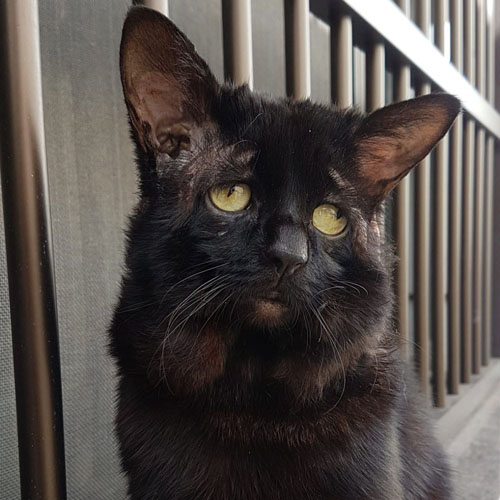
To learn more about this handsome cat, you can follow Sushi on Instagram.


